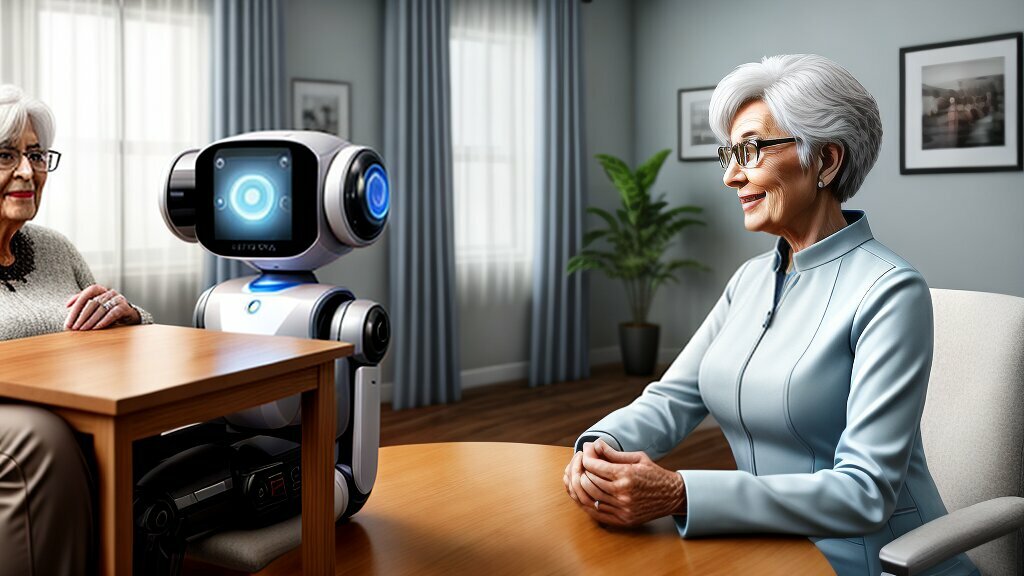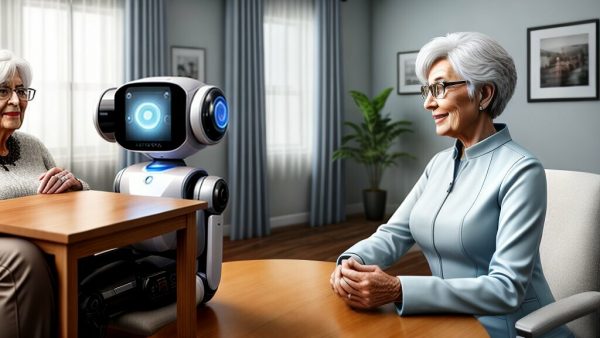As Nigeria’s population ages, with over 10 million elderly citizens projected by 2030, the demand for innovative care solutions grows. Artificial Intelligence (AI) companions (voice-activated assistants, chatbots, and virtual caregivers) offer promising support for elderly Nigerians, addressing loneliness, healthcare access, and daily assistance. These technologies, increasingly integrated into consumer devices, align with Nigeria’s expanding tech ecosystem, where mobile penetration exceeds 80%. This article explores how AI companions are transforming elderly care in Nigeria, focusing on accessibility, cultural integration, and practical applications, supported by recent developments.
Read more about Tech
Accessibility and Adoption Challenges
AI companions, such as Amazon’s Alexa or Google Assistant, are accessible via smartphones and low-cost smart speakers, yet adoption among elderly Nigerians faces hurdles. Limited internet penetration, at 43% in 2024, restricts access in rural areas, where many elderly reside. Digital literacy also poses a barrier; a 2024 study found only 20% of Nigerians over 60 are comfortable with smart devices. Cost remains a factor, though local innovations like Uniccon Group’s Omeife, Africa’s first humanoid robot, aim to lower barriers with affordable, locally developed solutions. For instance, Omeife assists with medication reminders and emergency alerts, tailored to Nigeria’s infrastructure challenges. These efforts highlight the need for scalable, cost-effective AI to reach elderly populations.
Register to attend the Connect Nigeria Business Mixer
Cultural Integration and Ethical Considerations
Integrating AI companions into Nigeria’s diverse cultural landscape requires sensitivity to local languages and traditions. Over 500 languages are spoken in Nigeria, yet most AI systems prioritize English. Recent advancements, such as AI-driven translation tools by Nigerian startup Awarri, enable Hausa and Yoruba compatibility, fostering trust among elderly users. Ethical concerns, including data privacy, are critical, as Nigeria’s Data Protection Act 2023 mandates secure handling of personal information. A 2024 report noted public skepticism about AI due to privacy fears, emphasizing the need for transparent systems. Culturally attuned AI, like chatbots offering folktale narration, enhances emotional bonds while respecting heritage.
Sign up for the Connect Nigeria daily newsletter
Practical Applications in Elderly Care
AI companions are revolutionizing elderly care in Nigeria through practical tools. For example, mDoc, a Nigerian telehealth platform, integrates AI chatbots to monitor chronic conditions like diabetes, common among the elderly. These bots schedule appointments and provide health tips, reducing hospital visits. In Lagos, pilot programs using AI-powered wearables track vitals and alert caregivers during emergencies, improving response times. Socially, AI companions combat loneliness; a 2023 initiative in Abuja deployed voice assistants to engage elderly users in daily conversations, boosting mental well-being. These examples underscore AI’s potential to deliver scalable, personalized care.
Got a suggestion? Contact us: [email protected]
Conclusion
AI companions hold transformative potential for elderly Nigerians, addressing accessibility, cultural, and practical needs. Despite challenges like connectivity and literacy, local innovations and ethical frameworks are paving the way for broader adoption. As Nigeria’s tech sector grows, AI companions can enhance elderly quality of life, blending tradition with technology.


